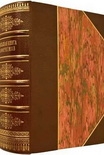Myths and Legends of China E. Werner (best reads of all time .TXT) 📖

- Author: E. Werner
Book online «Myths and Legends of China E. Werner (best reads of all time .TXT) 📖». Author E. Werner
The First Taoist Pope
Chang Tao-ling, the first Taoist pope, was born in A.D. 35, in the reign of the Emperor Kuang Wu Ti of the Han dynasty. His birthplace is variously given as the T’ien-mu Shan, ‘Eye of Heaven Mountain,’ in Lin-an Hsien, in Chekiang, and Fêng-yang Fu, in Anhui. He devoted himself wholly to study and meditation, declining all offers to enter the service of the State. He preferred to take up his abode in the mountains of Western China, where he persevered in the study of alchemy and in cultivating the virtues of purity and mental abstraction. From the hands of Lao Tzŭ he received supernaturally a mystic treatise, by following the instructions in which he was successful in his search for the elixir of life.
One day when he was engaged in experimenting with the ‘Dragon-tiger elixir’ a spiritual being appeared to him and said: “On Po-sung Mountain is a stone house in which are concealed the writings of the Three Emperors of antiquity and a canonical work. By obtaining these you may ascend to Heaven, if you undergo the course of discipline they prescribe.”
Chang Tao-ling
Chang Tao-ling found these works, and by means of them obtained the power of flying, of hearing distant sounds, and of leaving his body. After going through a thousand days of discipline, and receiving instruction from a goddess, who taught him to walk about among Page 139the stars, he proceeded to fight with the king of the demons, to divide mountains and seas, and to command the wind and thunder. All the demons fled before him. On account of the prodigious slaughter of demons by this hero the wind and thunder were reduced to subjection, and various divinities came with eager haste to acknowledge their faults. In nine years he gained the power to ascend to Heaven.
The Founder of Modern Taoism
Chang Tao-ling may rightly be considered as the true founder of modern Taoism. The recipes for the pills of immortality contained in the mysterious books, and the invention of talismans for the cure of all sorts of maladies, not only exalted him to the high position he has since occupied in the minds of his numerous disciples, but enabled them in turn to exploit successfully this new source of power and wealth. From that time the Taoist sect began to specialize in the art of healing. Protecting or curing talismans bearing the Master’s seal were purchased for enormous sums. It is thus seen that he was after all a deceiver of the people, and unbelievers or rival partisans of other sects have dubbed him a ‘rice-thief’—which perhaps he was.
He is generally represented as clothed in richly decorated garments, brandishing with his right hand his magic sword, holding in his left a cup containing the draught of immortality, and riding a tiger which in one paw grasps his magic seal and with the others tramples down the five venomous creatures: lizard, snake, spider, toad, and centipede. Pictures of him with these accessories are pasted up in houses on the fifth day of the fifth moon to forfend calamity and sickness. Page 140
The Peach-gathering
It is related of him that, not wishing to ascend to Heaven too soon, he partook of only half of the pill of immortality, dividing the other half among several of his admirers, and that he had at least two selves or personalities, one of which used to disport itself in a boat on a small lake in front of his house. The other self would receive his visitors, entertaining them with food and drink and instructive conversation. On one occasion this self said to them: “You are unable to quit the world altogether as I can, but by imitating my example in the matter of family relations you could procure a medicine which would prolong your lives by several centuries. I have given the crucible in which Huang Ti prepared the draught of immortality to my disciple Wang Ch’ang. Later on, a man will come from the East, who also will make use of it. He will arrive on the seventh day of the first moon.”
Exactly on that day there arrived from the East a man named Chao Shêng, who was the person indicated by Chang Tao-ling. He was recognized by a manifestation of himself he had caused to appear in advance of his coming. Chang then led all his disciples, to the number of three hundred, to the highest peak of the Yün-t’ai. Below them they saw a peach-tree growing near a pointed rock, stretching out its branches like arms above a fathomless abyss. It was a large tree, covered with ripe fruit. Chang said to his disciples: “I will communicate a spiritual formula to the one among you who will dare to gather the fruit of that tree.” They all leaned over to look, but each declared the feat to be impossible. Chao Shêng alone had the courage to rush out to the point of the rock and up the tree stretching Page 141out into space. With firm foot he stood and gathered the peaches, placing them in the folds of his cloak, as many as it would hold, but when he wished to climb back up the precipitous slope, his hands slipped on the smooth rock, and all his attempts were in vain. Accordingly, he threw the peaches, three hundred and two in all,





Comments (0)